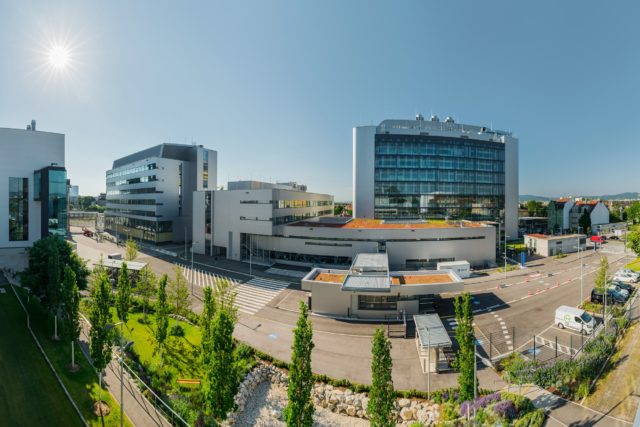
Boehringer Ingelheim, on the home stretch of standing up its fourth cell culture facility, has recruited 500 workers and installed a suite of new technology to rev up for an opening this fall.
Boehringer plans to officially open the doors at the €700 million facility in October. Capacity of up to 150,000 liters should help it meet continued “high” demand for its contract manufacturing work—and manufacture its own products, too—Boehringer Ingelheim said in a midyear update.
Meanwhile, the company is rolling out cutting-edge tech at the Vienna, Austria, plant, from virtual reality and automation to digital twins and artificial intelligence.
Designs for the facility were unveiled back in 2015 and construction kicked off in April 2017. The project will complement cell culture sites it already operates in Germany, China and the U.S.
The company isn’t disclosing the specific drugs it will produce at the facility, Christian Eckermann, Ph.D., Boehringer’s senior vice president of biopharma Austria said in an email interview. One of the first meds it will turn out there, though, is “a lifesaving drug used for acute ischemic stroke and acute myocardial infarction,” he said.
RELATED: The top 10 ESG pharma companies in 2021 – 1. Boehringer Ingelheim
(Boehringer Ingelheim)
In general, the plant will be used to manufacture “large volume recombinant proteins from mammalian cell culture,” he added.
Boehringer Ingelheim has hired about 500 employees to staff the new facility, Eckerman said. In 2020, the company had about 2,400 staffers in Vienna, he said.
Alongside the new cell culture facility’s 48,000-square-meter production building, Boehringer Ingelheim has established an annex building to house in-process control laboratories and its new manufacturing science department, Eckermann said.
The facility will also include a quality building, an energy-saving powerhouse, a workshop building and a logistics center with a fully automated high-bay warehouse, he added.
The facility will be completely paperless, too, thanks to electronic batch records and digital workflow, Eckermann said. It will leverage a “high degree” of automation, plus digital twin technology for “faster product transfer” and process optimization. A digital twin is a computerized copy of a real-world object or process that allows experts to garner real-time insights on a range of topics.
Meanwhile, the facility will also use virtual reality and smart glasses for training and real-time observations, such as virtual reality inspections and audits, Eckermann said.
The pandemic forced Boehringer Ingelheim to take extra steps to ensure construction and commissioning stayed on track, he said. The company reached mechanical completion and finished commissioning activities in the first half of the year. The facility is already in GMP operation, Eckermann said, but given COVID-19 rates this past spring, the company decided to schedule the facility’s “grand opening” for the beginning of October.
The company unveiled its inauguration plans in its first-half results announcement. Boehringer Ingelheim largely bucked pandemic sales trends last year and it’s carrying that upward momentum into 2021. For the first six months of the year, the company reeled in €9.8 billion ($11.62 billion), a 5.8% increase year over year when adjusted for foreign currencies. Boehringer generated revenues of about $22.29 billion for all of 2020.
Animal health, pharmaceuticals and biopharma contract manufacturing all drove Boehringer Ingelheim’s growth for the period, the company said.
On the pharma front, sales of the company’s Eli Lilly-partnered diabetes drug Jardiance and its respiratory drug Ofev did much of the heavy lifting. Jardiance sales jumped 17.2% to €1.4 billion, while Ofev, for its part, climbed 28.9% to €1.2 billion.
Meanwhile, net sales for contract manufacturing rose 1.1% to €322 million ($382 million) for the period, Boehringer Ingelheim said.






